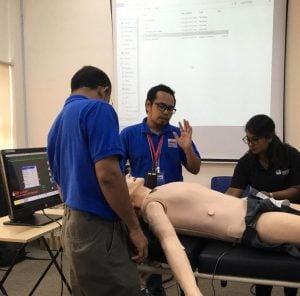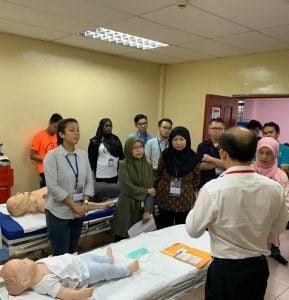[fusion_builder_container hundred_percent=”no” equal_height_columns=”no” menu_anchor=”” hide_on_mobile=”small-visibility,medium-visibility,large-visibility” class=”” id=”” background_color=”” background_image=”” background_position=”center center” background_repeat=”no-repeat” fade=”no” background_parallax=”none” parallax_speed=”0.3″ video_mp4=”” video_webm=”” video_ogv=”” video_url=”” video_aspect_ratio=”16:9″ video_loop=”yes” video_mute=”yes” overlay_color=”” overlay_opacity=”0.5″ video_preview_image=”” border_size=”” border_color=”” border_style=”solid” padding_top=”” padding_bottom=”” padding_left=”” padding_right=””][fusion_builder_row][fusion_builder_column type=”1_1″ layout=”1_1″ background_position=”left top” background_color=”” border_size=”” border_color=”” border_style=”solid” border_position=”all” spacing=”yes” background_image=”” background_repeat=”no-repeat” padding=”” margin_top=”0px” margin_bottom=”0px” class=”” id=”” animation_type=”” animation_speed=”0.3″ animation_direction=”left” hide_on_mobile=”small-visibility,medium-visibility,large-visibility” center_content=”no” last=”no” min_height=”” hover_type=”none” link=””][fusion_text] Simulated learning has existed for decades and was first introduced by the aviation industry to train pilots and ensure air travel safety. The healthcare industry has now, in the last few decades, realised the potential in the use of this teaching tool towards reducing errors and improving patient safety worldwide. This has resulted in universities nationwide using simulation, from low to high fidelity for teaching though the use is very varied with some being very minimal. An interest in this has led a group of simulation enthusiasts consisting of clinicians and academicians across Malaysia to unite and contribute towards improving patient safety in the healthcare system using simulation based education for undergraduate and postgraduate training, resulting in the formation of The Malaysian Society for Simulation in Healthcare, a newly founded society in Malaysia founded in December 2016. The goals of the society are to increase awareness about simulation and help to introduce and teach the various modalities available for the training of undergraduates and postgraduates. The society had its first conference in PPUKM in March 2017 and this year, the conference was conducted at the IMU Clinical Campus Seremban with support from the Emergency Department of Hospital Tuanku Ja’afar, Seremban. It is hoped that this conference will create awareness and interest among clinicians and academicians, be it nursing, allied health or medical to begin using simulation as a teaching tool.
This year’s 2.5 days’ conference was from Friday, 12 July to Sunday, 14 July 2019. A total of about 130 participants, including the speakers and facilitators, attended the conference. The participants comprise of doctors, academicians, nurses, medical assistants, allied health, medical students and simulation technicians from Malaysia, Singapore and Indonesia.
The Conference had speakers from Singapore, Brunei, India, Indonesia and Malaysia with the plenary speakers presenting and sharing their valuable experiences, knowledge and challenges in the use of simulation in their practice. Besides the plenary sessions, there were 35 workshops which were intended to target clinicians and academicians. [/fusion_text][fusion_table]
| The topics discussed at the workshops were: |
|---|
|
[/fusion_table][fusion_imageframe image_id=”36478″ style_type=”none” stylecolor=”” hover_type=”none” bordersize=”15″ bordercolor=”#ffffff” borderradius=”” align=”center” lightbox=”no” gallery_id=”” lightbox_image=”” alt=”” link=”” linktarget=”_self” hide_on_mobile=”small-visibility,medium-visibility,large-visibility” class=”” id=”” animation_type=”” animation_direction=”left” animation_speed=”0.3″ animation_offset=””]https://www.imu.edu.my/media/2019/08/QALI1628.jpg[/fusion_imageframe][fusion_text] Our students and alumni played an important role in making this conference at the clinical campus a success. The booklet for the conference was created by our very own Year 4 medical student while the Student Representative Council became a part of the organising team and led the student supporters during the conference. They helped with the registration, guiding participants to their respective workshops and as human models for the moulage war and ultrasound workshops. By being in the workshops, many of them were able to have hands-on experience with various surgical modalities, ultrasound teaching, learning systems and acute crisis management.  The moulage war became the highlight of the conference on day three. Having this on the last day was a good choice as it has resulted in an almost full attendance on that day, a Sunday when the norm of most conferences would see a drastic reduction in number of participants. In this event, participants were encouraged to form teams of two to four and compete through 3 levels, performing moulage on student volunteers using only resources provided by the facilitators. Three judges who were simulation experts judged the moulage based on specific criteria and winners were given a small token in the form of cash contributed by the Society and manikin distributors.
The moulage war became the highlight of the conference on day three. Having this on the last day was a good choice as it has resulted in an almost full attendance on that day, a Sunday when the norm of most conferences would see a drastic reduction in number of participants. In this event, participants were encouraged to form teams of two to four and compete through 3 levels, performing moulage on student volunteers using only resources provided by the facilitators. Three judges who were simulation experts judged the moulage based on specific criteria and winners were given a small token in the form of cash contributed by the Society and manikin distributors.  Verbal feedback from participants was good as they liked the non- formal arrangement of the conference as the setting was around the IMU clinical campus indoor garden area on the Ground Floor, simulation labs and seminar rooms. Space was not a problem and workshops were kept to time which made good time management during the conference. This conference brought people from different parts of Malaysia and other countries to IMU Clinical Campus and thus the recognition of what we do and have in our university. I hope to have more events at IMU in future, either in collaboration with th
Verbal feedback from participants was good as they liked the non- formal arrangement of the conference as the setting was around the IMU clinical campus indoor garden area on the Ground Floor, simulation labs and seminar rooms. Space was not a problem and workshops were kept to time which made good time management during the conference. This conference brought people from different parts of Malaysia and other countries to IMU Clinical Campus and thus the recognition of what we do and have in our university. I hope to have more events at IMU in future, either in collaboration with th
e MaSSH or otherwise, targeting nurses, academicians and clinicians and have IMU be known as one of the leaders in simulation based teaching and training. Prepared by A/Prof Dr Thiruselvi Subramaniam, Organising Chair 2nd MaSSH 2019 [/fusion_text][fusion_table]
| Local Organising Team | |
|---|---|
| Faculty | A/Prof Arshad, Dr Tan Ann Jee, Dr Rosdara |
| IT | Tay Kong Yik |
| CSSC | Sister Siti Ramlah, Daniel Tay & Malini |
| FMA | Mohammad Ridzuan |
| Student Representative Council | under the leadership of Jason Foo |
| Conference Booklet | Year 4 / Semester 7 Student Michael Yang |
[/fusion_table][/fusion_builder_column][/fusion_builder_row][/fusion_builder_container]

